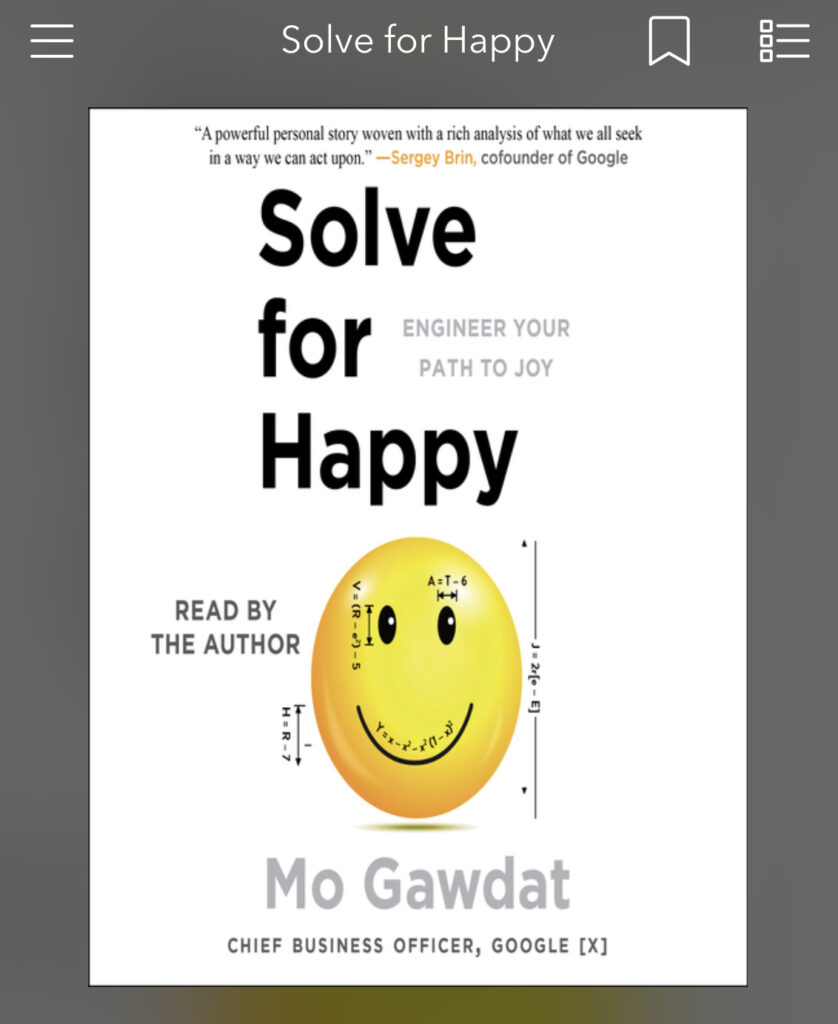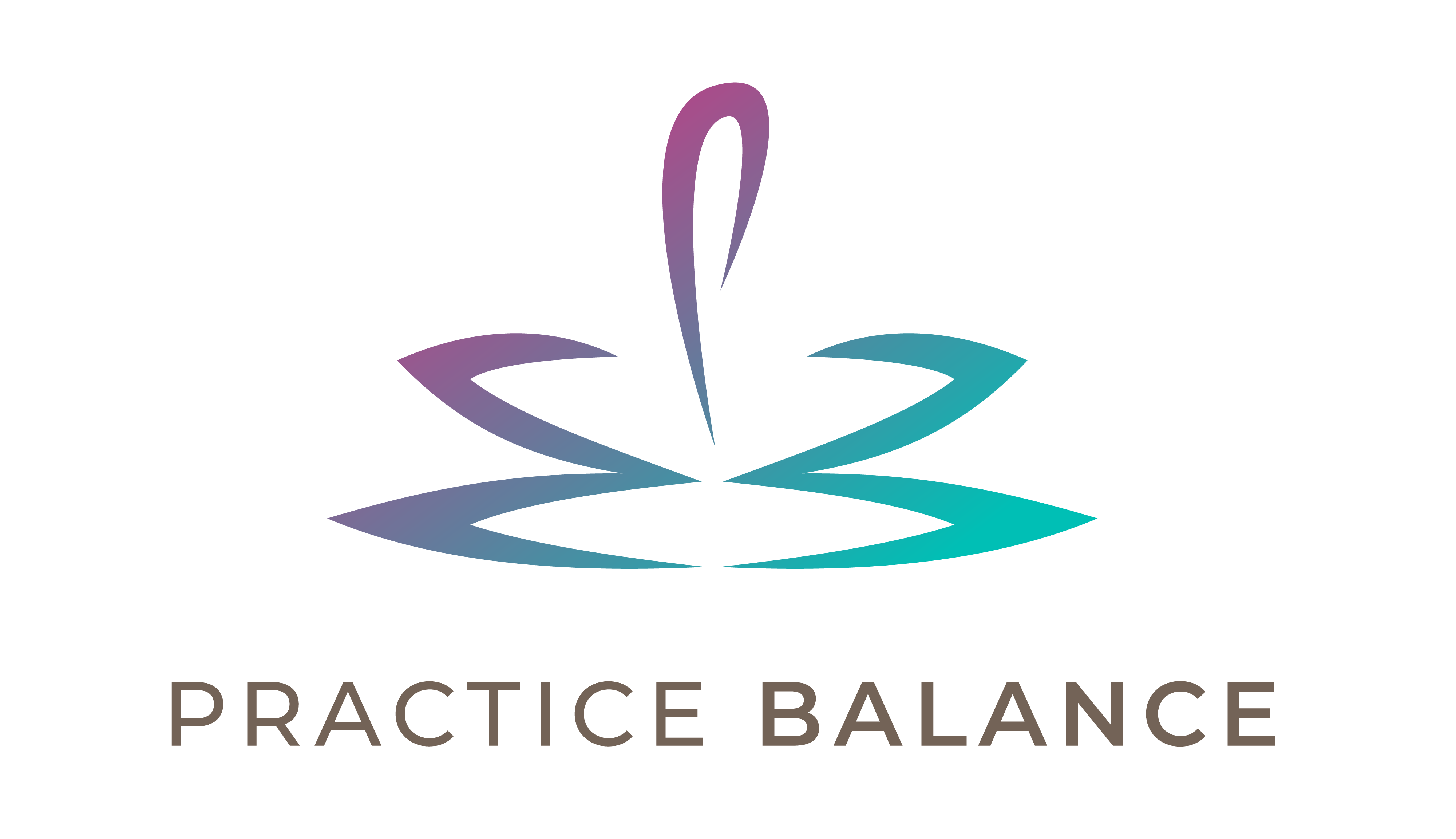“I think you might like this book,” he said.
“Have you read it yet?” I said.
“No, but I requested it from the library and think you would like it more.”
Great. Another thing he wants me to read, was my initial thought.
You see, my husband sends me articles, electronic books, and podcasts frequently. Sometimes it gets a bit overwhelming and I ask him to take a pause. But sometimes he shares something that is pure gold. Like this time.
Imagine that you check all the boxes, jump through all the hoops, and reach the ultimate pinnacle of success in your career. You think this is supposed to make you happy… but slowly you realize it doesn’t. You then set out to learn everything there is to know about happiness. You practice, and you think you’ve cracked the code. Then everything you’ve just learned is tested by a tragedy.

I started listening to the book Solve for Happy, written and narrated by Mo Gawdat, on my Overdrive app at night after everyone else was in bed. At first, I thought I’d end up just skimming it in a sleepy haze, because I’d already read a lot of similar information in previous books like The Happiness Project and A New Earth. But something made me pause and slow down. In the first chapter, Gawdat’s voice suddenly changed as he mentioned an event that had really challenged his own happiness and ideas of meaning. He had recently lost his 21 year old son due to a fateful medical error.
As a physician, I immediately wanted to know more. Yet first, Gawdat outlined his rise to wealth and power as a former engineer and head of Google (X). He described his allegiance to the outward and traditional signs/symptoms of success: the cars (16 in total!), the homes, the stuff. He slowly began to realize that these things did not bring him true happiness. Thus, he sought to learn as much as he could about happiness itself.
The result of this search was his happiness equation:
H = P – E
H represents Happiness, P is your Perception of life’s events, and E is your Expectations. As a former engineer myself, I found this brilliantly simple. When perceptions are more positive, happiness increases. Yet when expectations become great and overpower positive perceptions, they detract from happiness.
I loved Gawdat’s practical approach to common themes from happiness literature. Using practical examples, he discusses mindfulness, present-moment thinking, fears, gratitude, reframing our thoughts, and learning to embrace change. His actionable exercises for the reader at the end of each chapter include things like constructing a “happy list” of the simple things that make you happy, or writing down a list of your fears.
More Than Just A Self Help Book
At the same time, he peppers throughout these chapters examples using his son. And every time he does this, his voice quiets. Breaks up. You feel all the feelings as he’s reading: nostalgic happiness, grief, deep love… even wisdom. You get the sense that his son truly was his greatest teacher – a young man wise beyond his years to what really matters in life. Almost an immortal teacher even when he was alive.
Now, to experience this, you might need to listen to the book like I did rather than merely read the pages. But Gawdat also includes chapters on mortality and faith that will leave you thinking deeply regardless of whether you’re absorbing the information through your eyes or ears. His chapter on death… wow. I even listened to part of it twice. And I shed tears both times. Then I told my husband about the chapter, and we both cried. The author’s analogy of life and death as playing a video game with his son was extremely powerful. If you want to know more, I suggest you go get this book!

After listening to this book, I was left wondering how this man has been able to apply all these habits and concepts he recommends for optimal happiness, given the fact that he’s faced one of the saddest, most difficult challenges anyone can imagine: losing a child. Well, in the Afterword (which I usually don’t pay attention to unless it was really a good book), he confesses that the death of his son, the event that did not incite his quest for happiness and meaning but really made him want to write the book, caused all his newfound strength to come crashing down. Like all humans, he reverted back to old habits and old feelings. He shared dreams where he had diaglogues with his son. Where his son told him he wasn’t finished on this earth, sharing wisdom on happiness with others. Hence, he pressed on to write the book.
If you can’t tell, I highly recommend this book to anyone. Some of the themes sound heavy, but I promise that it’s written in a way that’s both powerful and practical. If you’ve read it already or happen to pick it up, leave a comment below and let me know what you think!




